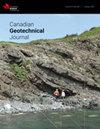Performances of a Large-scale Deep Excavation with Multi-support Types and Zoned Excavation Technique in Shanghai Soft Soil
IF 3
3区 工程技术
Q2 ENGINEERING, GEOLOGICAL
引用次数: 0
Abstract
This paper presents a comprehensive field investigation on a large-scale deep basement excavation in Shanghai soft soil propped by a multi-support system. Because of its large size, irregular shape, and different excavation depths, the excavation site was divided into Zone A and Zone B to optimize the construction process and improve the construction efficiency. The excavation was constructed using the “bottom-up” (BU) method following the principles of stratification and zone excavation. A notable innovation in this project is the implementation of three different support sub-systems as a multi-support system to accommodate different deformation requirements in different areas. The excavation was densely instrumented to monitor the behaviors of retaining walls, columns, axial forces of struts, and surrounding ground throughout the whole construction process. The wall deformation and ground surface settlement of the three support sub-systems are comprehensively compared to investigate the performances of the three support sub-systems. The comparison of the corner-effect envelope summarized from nine reported cases indicates that the multi-support system can effectively alleviate the spatial corner effects of the excavation. The zoned construction technique in conjunction with the multi-support system presented in this case study provides an efficient and economic approach for large-scale deep excavation in soft soils.在上海软土中采用多支撑类型和分区挖掘技术的大型深基坑开挖性能
本文介绍了对采用多支撑系统支撑的上海软土地区大型深层地下室开挖的综合实地调查。由于开挖场地面积大、形状不规则、开挖深度不同,为优化施工工艺、提高施工效率,开挖场地被划分为 A 区和 B 区。开挖采用 "自下而上"(BU)的方法,遵循分层和分区开挖的原则。该项目的一个显著创新是采用三个不同的支撑子系统作为多支撑系统,以适应不同区域的不同变形要求。在整个施工过程中,开挖现场安装了密集的仪器,以监测挡土墙、支柱、支撑轴力和周围地面的行为。综合比较了三种支撑子系统的墙体变形和地表沉降,以研究三种支撑子系统的性能。从九个报告案例中总结出的转角效应包络对比表明,多支撑系统能有效缓解开挖的空间转角效应。本案例研究提出的分区施工技术与多支撑系统相结合,为在软土中进行大规模深层开挖提供了一种高效、经济的方法。
本文章由计算机程序翻译,如有差异,请以英文原文为准。
求助全文
约1分钟内获得全文
求助全文
来源期刊

Canadian Geotechnical Journal
地学-地球科学综合
CiteScore
7.20
自引率
5.60%
发文量
163
审稿时长
7.5 months
期刊介绍:
The Canadian Geotechnical Journal features articles, notes, reviews, and discussions related to new developments in geotechnical and geoenvironmental engineering, and applied sciences. The topics of papers written by researchers and engineers/scientists active in industry include soil and rock mechanics, material properties and fundamental behaviour, site characterization, foundations, excavations, tunnels, dams and embankments, slopes, landslides, geological and rock engineering, ground improvement, hydrogeology and contaminant hydrogeology, geochemistry, waste management, geosynthetics, offshore engineering, ice, frozen ground and northern engineering, risk and reliability applications, and physical and numerical modelling.
Contributions that have practical relevance are preferred, including case records. Purely theoretical contributions are not generally published unless they are on a topic of special interest (like unsaturated soil mechanics or cold regions geotechnics) or they have direct practical value.
 求助内容:
求助内容: 应助结果提醒方式:
应助结果提醒方式:


